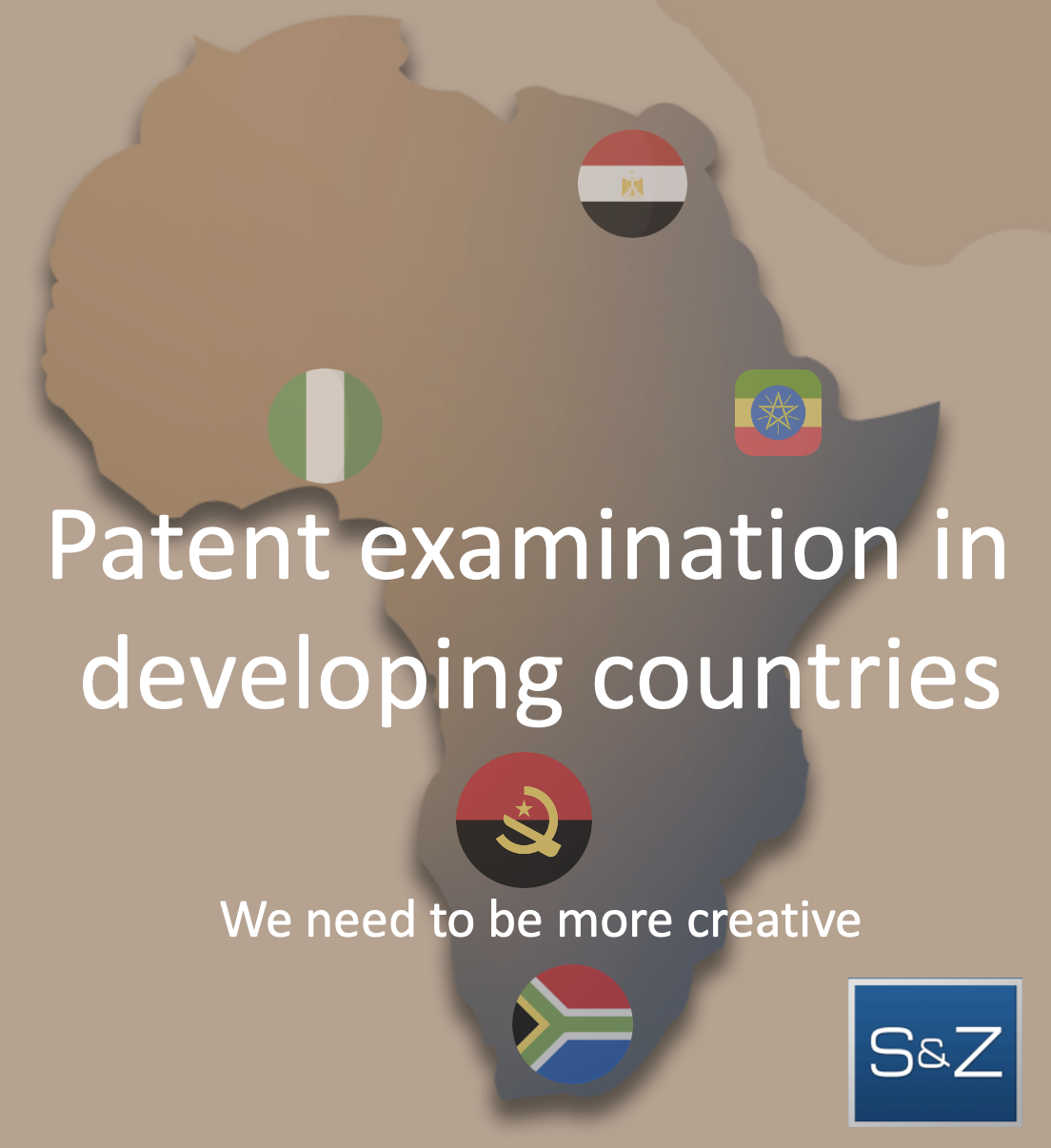Substantive examination of patents in Africa – proposal
Would this not be the most efficient way to implement substantive examination of patents in developing countries (especially in Africa)?
- conduct formal examination of patents only before grant to make the patent process simple, quick and affordable;
- if the patentee wishes to institute infringement proceedings, require the patentee to request substantive examination;
- upon requesting substantive examination, permit the patentee to amend the patent to: narrow the scope of the claims; or align the claims with examined patent claims in corresponding patents;
- only permit the patentee to institute infringement proceedings after substantive examination has successfully been completed.
Let’s take South Africa as an example:
14,000 patents are filed each year; to examine these patent applications would require about 175 patent examiners – more than the total number of practising patent attorneys in the country; each year only about 5 patent infringement proceedings are brought before the Commissioner of Patents Court. If South Africa adopted this approach:
- the Patent Office would require only a couple of qualified examiners to examine 5 instead of 14,000 patents;
- the examiner would benefit from access to search and examination reports in respect of corresponding patents;
- patentees would not need to waste money paying for, and examiners would not need to waste time conducting substantive examination of 13,995 patents that are likely to expire without ever being enforced;
- defendants in litigation proceedings would find comfort in knowing that the patent had properly been examined; and
- the Commissioner of Patents Court would be able to focus on the issue of infringement instead of also sitting as the “examiner” and having to deal with interlocutory proceedings relating to amendment of patents.
Developing countries need to be creative when it comes to the issue of patent examination instead of defaulting to examining every patent that is filed.

